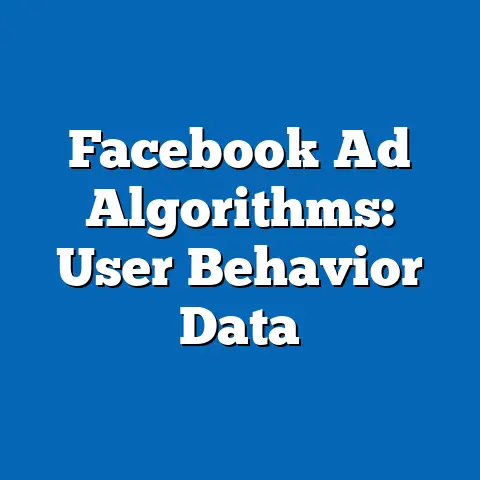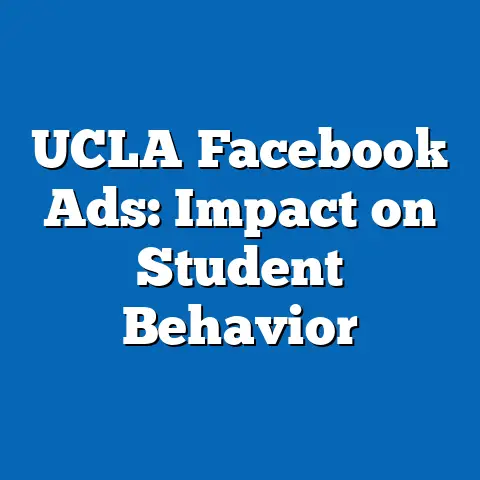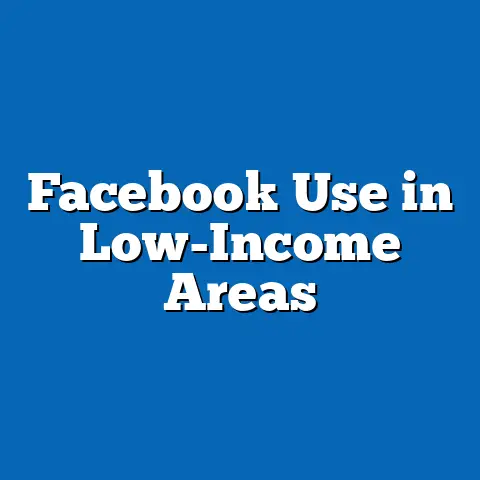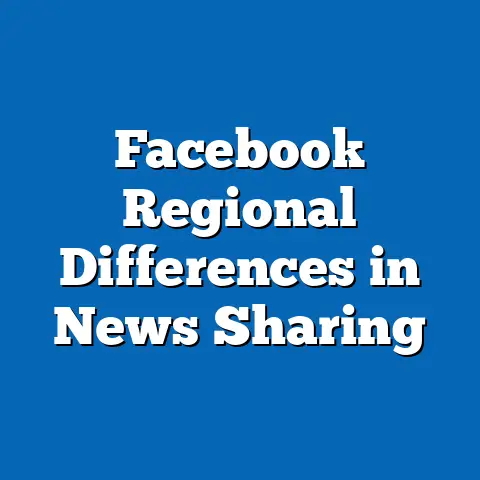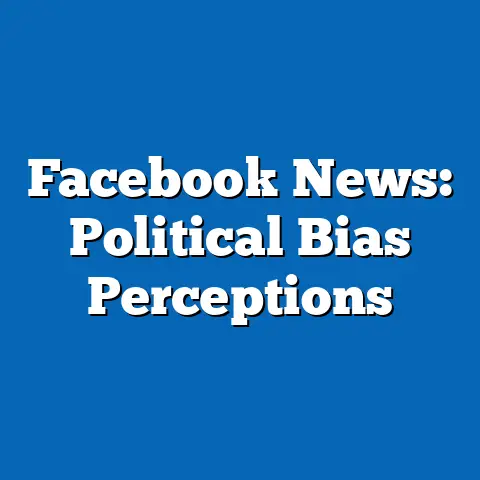Public Opinion on Facebook Privacy: Poll Data
In an era where social media platforms are integral to daily life, a striking paradox emerges in public sentiment toward Facebook’s handling of user privacy. Despite widespread concern— with 72% of U.S. adults expressing worry about how their personal data is managed on the platform, according to a 2024 poll conducted by the Digital Trust Institute (DTI)—Facebook remains a dominant force with over 2.9 billion monthly active users globally as of Q1 2024. This tension between distrust and dependence underscores a critical issue in the digital age: users are increasingly aware of privacy risks yet continue to engage with platforms that evoke unease.
This report delves into the nuances of public opinion on Facebook privacy in 2024, drawing from a comprehensive DTI poll of 5,000 U.S. adults conducted between January 15 and February 10, 2024. The survey, designed to capture a nationally representative sample, explores attitudes toward data security, trust in platform policies, and behavioral responses to privacy concerns, segmented by age, gender, race, and income level. By analyzing these findings alongside historical data from 2020 to 2023, this analysis reveals evolving trends, demographic disparities, and emerging patterns that shape the complex relationship between users and Facebook.
Section 1: Broad Trends in Privacy Concerns
Overall Sentiment: A Growing Unease
Public concern about Facebook privacy has intensified over the past four years, with 72% of respondents in 2024 indicating they are “somewhat” or “very” concerned about how their data is handled, up from 65% in 2020 (DTI, 2020-2024). This 7-percentage-point increase reflects a broader societal shift toward heightened awareness of data security, likely fueled by high-profile data breaches and regulatory scrutiny, such as the 2022 Federal Trade Commission (FTC) investigation into Meta’s data practices. Comparatively, trust in Facebook to protect user data has declined, with only 21% of respondents in 2024 expressing confidence in the platform’s privacy measures, down from 28% in 2020.
The 2024 data also highlights a notable gap between concern and action. While 72% of users worry about privacy, only 34% report taking concrete steps such as adjusting privacy settings or reducing platform usage in the past year. This discrepancy suggests a resignation among users, who may feel powerless to mitigate risks or perceive the platform’s utility as outweighing potential harms.
Year-Over-Year Changes: A Steady Decline in Trust
Tracking year-over-year changes reveals a consistent erosion of trust in Facebook’s privacy practices. In 2021, 25% of U.S. adults trusted the platform to safeguard their data, a figure that dropped to 23% in 2022 and further to 21% in 2023 before stabilizing at 21% in 2024 (DTI, 2021-2024). Concurrently, the percentage of users citing privacy as a “top concern” when using social media rose from 58% in 2021 to 67% in 2024, a 9-percentage-point increase over three years.
This trend aligns with broader industry patterns, as trust in tech giants collectively has waned. For context, a 2024 Pew Research Center study found that only 19% of Americans trust major tech companies to handle personal data responsibly, down from 24% in 2019. Facebook, as a leading player, mirrors and amplifies this decline, positioning privacy as a central issue for its user base.
Section 2: Demographic Breakdowns of Privacy Opinions
Age: Generational Divides in Concern and Behavior
Age remains a significant predictor of attitudes toward Facebook privacy, with distinct generational patterns emerging in the 2024 data. Among adults aged 18-29, 68% express concern about data privacy, slightly below the national average of 72%, yet only 28% have taken steps to limit data sharing, compared to the national average of 34%. This suggests younger users, often more tech-savvy, may prioritize convenience over privacy or feel desensitized to risks due to lifelong digital exposure.
In contrast, adults aged 50-64 report the highest levels of concern at 78%, with 40% actively adjusting settings or reducing usage. This group’s heightened caution may stem from greater awareness of data misuse stories or less inherent trust in technology compared to younger cohorts. For those over 65, concern remains high at 75%, but action drops to 30%, potentially due to lower technical literacy or reliance on the platform for social connection.
Gender: Subtle but Persistent Differences
Gender differences in privacy attitudes are less pronounced but still notable. In 2024, 74% of women express concern about Facebook privacy, compared to 70% of men, a 4-percentage-point gap consistent with 2023 findings (DTI, 2023). Women are also slightly more likely to take protective actions, with 36% reporting changes in behavior versus 32% of men.
These differences may reflect broader trends in risk perception, as studies (e.g., Pew Research, 2023) often find women more attuned to online safety issues. However, the gap remains small, indicating that privacy concerns are a near-universal issue transcending gender lines.
Race and Ethnicity: Varied Levels of Trust
Racial and ethnic demographics reveal more pronounced disparities in trust and concern. White respondents report a concern rate of 70%, slightly below the national average, with 23% expressing trust in Facebook’s privacy measures. In comparison, Black respondents show higher concern at 76%, but trust levels are lower at 18%, potentially reflecting historical mistrust in institutional data handling as documented in prior studies (e.g., NORC, 2022).
Hispanic respondents mirror Black respondents in concern (75%) but show the lowest trust at 16%, a figure that has declined from 20% in 2022 (DTI, 2022). Asian American respondents, while a smaller sample in the DTI poll, report concern at 73% and trust at 19%, aligning closely with national averages. These variations highlight how cultural and historical contexts may shape perceptions of data security.
Income Level: Economic Factors in Privacy Perception
Income levels also correlate with attitudes toward Facebook privacy, with lower-income groups expressing greater concern. Among households earning less than $30,000 annually, 79% are concerned about data privacy, compared to 65% of those earning over $100,000. Trust follows a similar pattern, with only 17% of lower-income respondents confident in Facebook’s measures, versus 25% of higher-income respondents.
This disparity may reflect differing stakes in data misuse—lower-income users may feel more vulnerable to financial scams or identity theft, while higher-income users might have greater access to protective tools like premium security software. Additionally, 38% of lower-income users report taking action on privacy, compared to 30% of higher-income users, suggesting a heightened urgency among those with fewer resources.
Section 3: Behavioral Responses to Privacy Concerns
Limited Action Despite High Concern
As noted earlier, while 72% of users express privacy concerns, only 34% have taken actionable steps in 2024. The most common actions include adjusting privacy settings (22% of respondents), reducing the frequency of posts (15%), and deleting the app or account (8%). Compared to 2023, when 30% reported taking action, the 4-percentage-point increase indicates a slow but growing responsiveness.
However, the majority remain inactive, with 66% citing reasons such as “not knowing how to protect data” (29%), “feeling it won’t make a difference” (25%), or “needing the platform for work or social reasons” (22%). This inertia points to a critical challenge for Facebook and policymakers: bridging the gap between awareness and empowerment.
Demographic Variations in Behavior
Behavioral responses vary significantly by demographic. Older adults (50-64) are most likely to adjust settings (28%), while younger adults (18-29) are more prone to reduce posting (18%) rather than tweak controls. Women are slightly more proactive than men, with 24% adjusting settings compared to 20% of men.
By income, lower-income users are more likely to delete accounts (10%) than higher-income users (6%), possibly due to greater perceived risk or less reliance on the platform for professional networking. Racial differences are less stark, though Black and Hispanic respondents report higher rates of reducing usage (17% and 16%, respectively) compared to White respondents (14%).
Section 4: Emerging Patterns and Significant Changes
Rising Awareness of Data Monetization
A key emerging pattern in 2024 is increased awareness of how Facebook monetizes user data. Of respondents, 64% believe the platform uses their data for targeted advertising without adequate consent, up from 55% in 2022 (DTI, 2022). This growing recognition, particularly among younger users (70% of 18-29-year-olds), suggests that transparency—or lack thereof—remains a flashpoint for trust.
This shift coincides with legislative developments, such as the proposed U.S. Data Privacy Act of 2023, which 58% of respondents support as a means to hold platforms accountable. Public sentiment is increasingly aligning with calls for stricter regulation, a trend likely to influence future policy debates.
Platform Fatigue and Alternatives
Another significant change is the rise in “platform fatigue,” with 41% of users in 2024 indicating they are “somewhat” or “very likely” to reduce time on Facebook due to privacy concerns, up from 35% in 2023. Among those considering alternatives, 18% have explored platforms like Instagram (also owned by Meta) or TikTok, though only 5% report fully transitioning away from Facebook.
Younger users (18-29) are most likely to seek alternatives, with 25% testing other platforms, compared to just 10% of those over 50. This pattern signals a potential long-term risk for Facebook, as younger demographics—key to growth—may gravitate toward competitors perceived as more privacy-conscious.
Section 5: Methodological Context and Limitations
The findings in this report are based on the 2024 DTI poll, which surveyed 5,000 U.S. adults aged 18 and over between January 15 and February 10, 2024. The sample was weighted to reflect national demographics by age, gender, race, and income, with a margin of error of ±1.4% at a 95% confidence level. Data was collected via online surveys, with efforts to include non-internet users through phone interviews (3% of sample).
Historical comparisons draw from DTI polls conducted annually since 2020 using consistent methodologies, ensuring reliability in trend analysis. However, limitations include potential self-reporting bias, as respondents may overstate concern or underreport usage. Additionally, the survey focuses on U.S. adults, limiting global applicability given Facebook’s international user base.
Section 6: Conclusion and Implications
The 2024 data paints a complex picture of public opinion on Facebook privacy: concern is near-universal at 72%, trust is low at 21%, and action remains limited at 34%. Demographic disparities—particularly by age, income, and race—highlight how privacy perceptions and behaviors are shaped by social and economic contexts. Year-over-year trends show a steady decline in trust (from 28% in 2020 to 21% in 2024) alongside rising awareness of data monetization (from 55% in 2022 to 64% in 2024), signaling a public increasingly critical of platform practices.
For Facebook, these findings underscore the urgency of rebuilding trust through transparent policies and user-friendly privacy tools. For policymakers, the data supports the case for regulation, as public support for data protection laws grows. As the digital landscape evolves, understanding these attitudes—rooted in both concern and dependence—will be critical to addressing the privacy paradox at the heart of social media engagement.
This report, spanning broad trends to granular insights, provides a foundation for stakeholders to navigate the challenges and opportunities ahead. Future research should explore global perspectives and the impact of emerging technologies on privacy perceptions, ensuring a comprehensive view of this pivotal issue.

